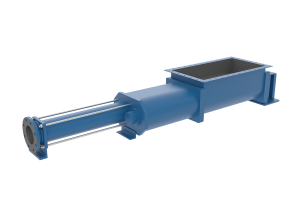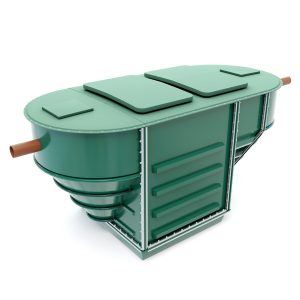GWE Raptor Waste-to-energy Technology Wins IChemE Energy Award
Worldwide wastewater treatment and green energy authority Global Water Engineering (GWE) has won a major international chemical engineering award for its process by which it transforms food processing sludge waste from an environmental problem into profitable green energy.

From left to right, Kate Silverton, host of the awards, Pascal Pipyn, GWE EVP Process and R&D, Jean Pierre Ombregt, GWE Chairman and CEO and a representative from PM Group, who sponsored the Energy Award (Image: Global Water Engineering)
GWE Chairman and CEO Mr Jean Pierre Ombregt accepted the IChemE Energy Award from the Institute of Chemical Engineers (IChemE), which represents more than 40,000 chemical engineers worldwide and which staged the 2014 awards in the UK this month this month to recognise and reward chemical engineering innovation and excellence.
The IChemE Energy Award – sponsored by PM Group – recognises the best project or process to demonstrate innovation in renewable energy, alternative energy sources, efficient energy use or the development of energy production methods that reduce energy and water intensity.
GWE’s entry involved a world first with Chok Chai Starch in Thailand, where a GWE Raptor system is used to convert wet pulp waste product from the processing of cassava roots into biogas (methane) green energy, at their tapioca starch plant in Uthai Thani.
Mr Ombregt said the IChemE award was an outstanding confirmation from a world-respected body of the practical, profitable and immediate benefits of anaerobic treatments of waste water and sludge, which etc.
“Green energy alternatives such as wind power and solar power get most of the headlines for their achievements, but this anaerobic process is even more suited to industry in many instances, given that it provides reliable base load power and simultaneously treats wastewater to high discharge standards,” said Mr Ombregt.
Anaerobic biogas production is also proven in more than 60 successful GWE projects globally and has massive further potential worldwide wherever industry is dealing with a biological waste stream such as those produced by industries including food and beverage, dairy, beef, livestock, agribusiness and primary product processing.
The Raptor system greatly reduces an environmental pollution issue by processing and converting to useful green energy the leftover fresh pulp, which starts to ferment once stored. The rotting organic material can generate considerable odor and release heavily polluted wastewater leaching out of mountainous pulp piles.
“Advanced anaerobic technology such as that installed at Chok Chai Starch is also strongly applicable to any factory or process with one or more digestible solid waste streams.” says Mr Ombregt.
“Such plants – including breweries, fruit, food waste, agro industries, and energy crops including corn – can easily use this technology to generate energy. It opens the door to environmental and production efficiency gains globally,” he said.
The Institution of Chemical Engineers (IChemE) is the global professional membership organisation founded in 1922 as a professional institution for chemical and process engineers, IChemE has grown to its current status of over 40,000 members across 120 countries, with offices in Australia, Malaysia, New Zealand, Singapore and the UK.
Source: GLOBAL WATER & ENERGY







